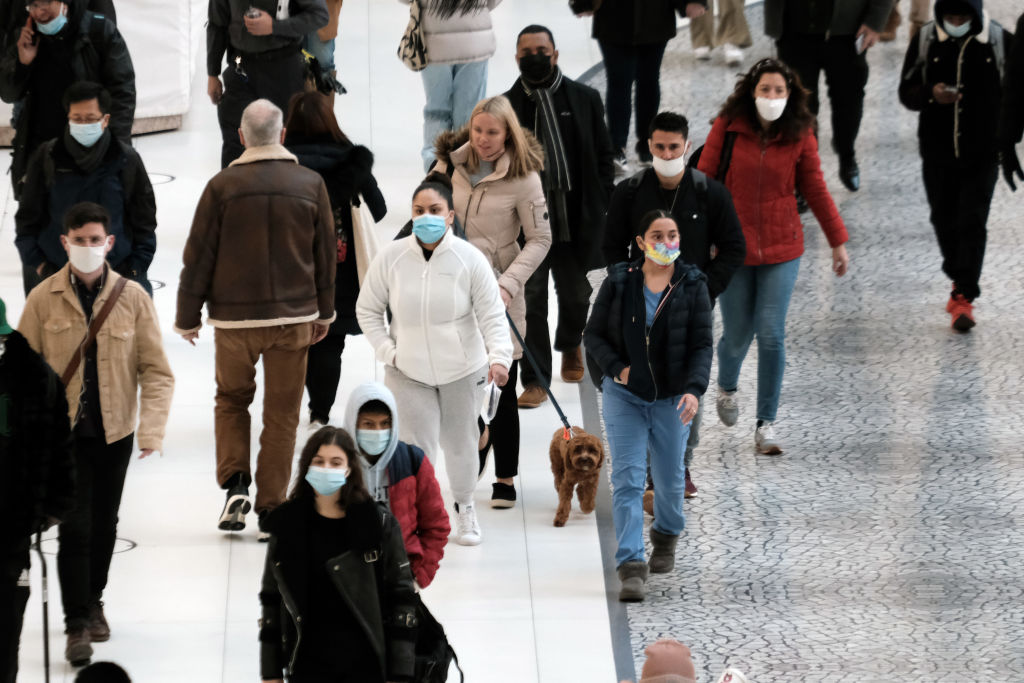NYU said Wednesday it will move finals online, close campus facilities and cancel gatherings after a "sharp acceleration" in the rate of COVID cases.
"Following steady declines in new COVID-19 cases since the opening weeks of the fall semester, we began to see increases in early November, in line with New York City's trends. At the beginning of this week, we detected a sharp acceleration in the rate of new cases," a university spokesman said in a statement.
The university said it will hold finals remotely, cancel "non-essential" gatherings, suspend the use of gyms and cancel athletic events, and encourage students to take their food to go from dining halls.
Princeton goes remote too
Get Tri-state area news and weather forecasts to your inbox. Sign up for NBC New York newsletters.
The move mirrors Princeton University, which said Wednesday it will make all finals remote and cancel unmasked indoor gatherings, amid an increase in COVID cases that tracks the recent omicron variant-driven spikes elsewhere.
Finals will go remote effective Thursday "so that students will be able to leave campus at their earliest convenience," Princeton said in an update posted to its campus COVID website Wednesday morning.
The university also ordered that indoor gatherings with food, or where masks can't be work, be immediately canceled or postponed until after Jan. 7.
The school cited an "increase in undergraduate COVID cases" but didn't quantify the impact. The most recent data on its COVID dashboard goes only through Dec. 10; in that week, the campus had 34 positive cases among students and staff.
Vaccination rates are high at Princeton -- 96% for faculty and staff, 98% for graduate students and 99% for undergrads.
Cornell Omicron outbreak grows
Princeton's move comes one day after Cornell University called a "red alert" for students -- moving all finals online, cancelling on-campus events and closing facilities -- as COVID-19 infections rose more 20x in just a week and the omicron variant began showing up in "significant" numbers.
The university reported 276 on-campus positives Monday, the latest day for which data was available, fully 23 times what it had on Dec. 6.
In fact, between Saturday and Monday the university had twice as many cases as it had in the first 10 days of December combined. Like Princeton, Cornell is highly vaccinated, and the university said most of the positive omicron tests were coming in vaccinated students - including those with boosters.
"Since our Saturday message, our surveillance testing has continued to identify the rapid spread of COVID-19 among our student population," university president Martha Pollack said in a statement posted online Tuesday. "While faculty and staff case numbers currently remain low, just last evening our COVID-19 testing lab team identified evidence of the highly contagious Omicron variant in a significant number of Monday’s positive student samples."
Pollack's letter listed a number of changes as a result of the increased alert status:
- All university activities involving undergraduates (including events and social gatherings) and all university-sponsored events (including winter celebrations) are canceled.
- The December 18 recognition ceremony for December graduates is canceled.
- Students utilizing Cornell Dining are strongly encouraged to “grab-and-go”; if you must eat near others, please do so at a distance.
- Libraries are closed to students.
- Athletics competitions on Sunday are canceled. Fitness centers and gyms are closed to students.
- Offices and labs remain open, but undergraduate students should not participate in any work-study or lab work.
The CDC said Tuesday that the omicron variant of COVID-19 is increasing in prevalence in New York and New Jersey at about 4x the rate in the rest of the country.
What that ultimately means is still unclear, though. A study out of South Africa released Tuesday morning suggested that at least some vaccines were far less effective at preventing infection with omicron -- but hospitalizations are also much lower than they were with the delta variant, suggesting it's possible that omicron causes more mild illness.
Pollack acknowledged that early evidence in her letter but said caution was still warranted.
"(The) point is that higher transmissibility leads to exponential growth, which outweighs the linear decrease in percent of severe cases. To avoid this type of situation, it is imperative not to let such infections run unchecked, but to take steps that limit transmission," she wrote.



